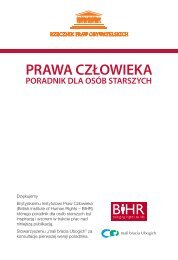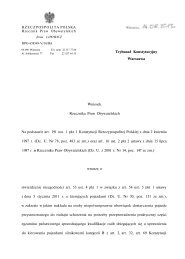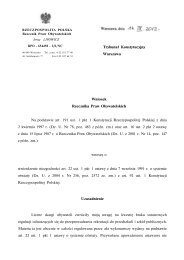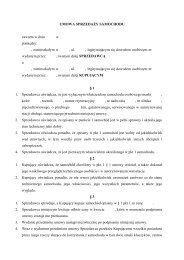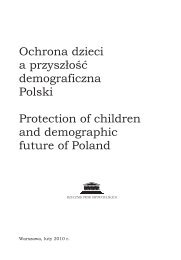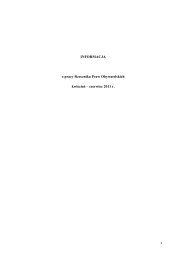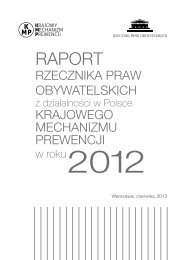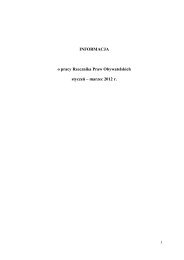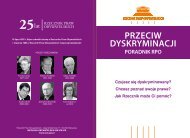Prawa człowieka w krajach Partnerstwa Wschodniego UE z ...
Prawa człowieka w krajach Partnerstwa Wschodniego UE z ...
Prawa człowieka w krajach Partnerstwa Wschodniego UE z ...
Create successful ePaper yourself
Turn your PDF publications into a flip-book with our unique Google optimized e-Paper software.
6. MOLDOVA<br />
a. Institutional and legislative framework<br />
When evaluating the institutional and legislative framework, HRC, CERD and CESCR<br />
recommended that Moldova adopt comprehensive anti-discrimination legislation. UNCT<br />
acknowledged the penalisation of domestic violence and adoption of legal instruments<br />
supporting combating domestic violence. In the opinion of UN organs, the major problem<br />
remained the situation of the national human rights institution – Parliamentary Advocates and<br />
the Centre for Human Rights. The Centre was accredited with “B” status for compliance with<br />
the Paris Principles, meaning partial congruence of the legislative framework and the work of<br />
the institution. The Human Rights Committee noted inadequate funding and low effectiveness<br />
of the institution. CERD recommended that the State authorities establish a fully independent<br />
ombudsman compliant with the Paris Principles and ensure his adequate funding. CRC<br />
welcomed the appointment of the Child’s Parliamentary Advocate, but at the same time<br />
reminded that he should have adequate financial and technical resources to exercise his or her<br />
mandate. HRC and CAT requested explanations concerning the functioning of the National<br />
Preventive Mechanism established under the Optional Protocol to the International<br />
Convention against Torture and Other Cruel, Inhuman or Degrading Treatment or Punishment<br />
and recommended that Moldova strengthen the ombudsman’s capacity to implement the<br />
Mechanism.<br />
b. Equality and non-discrimination<br />
CEDAW noted the persistence of patriarchal attitudes and stereotypes negatively<br />
affecting women’s position in the society. The Committee urged Moldovan authorities to<br />
accelerate measures aimed at ensuring equality between men and women. CAT reported<br />
recurring cases of violence and hate speech towards minorities, including sexual minorities.<br />
CERD commented at length on the problem of discrimination in Moldova, mentioning<br />
stereotypes against and unfair treatment of the Roma and Jewish minorities and migrants from<br />
Asia and Africa. The HRC noted discrimination of people with HIV/AIDS and LGBT<br />
persons. CRC expressed a similar view with respect to discrimination of children, also from<br />
vulnerable groups.<br />
50



